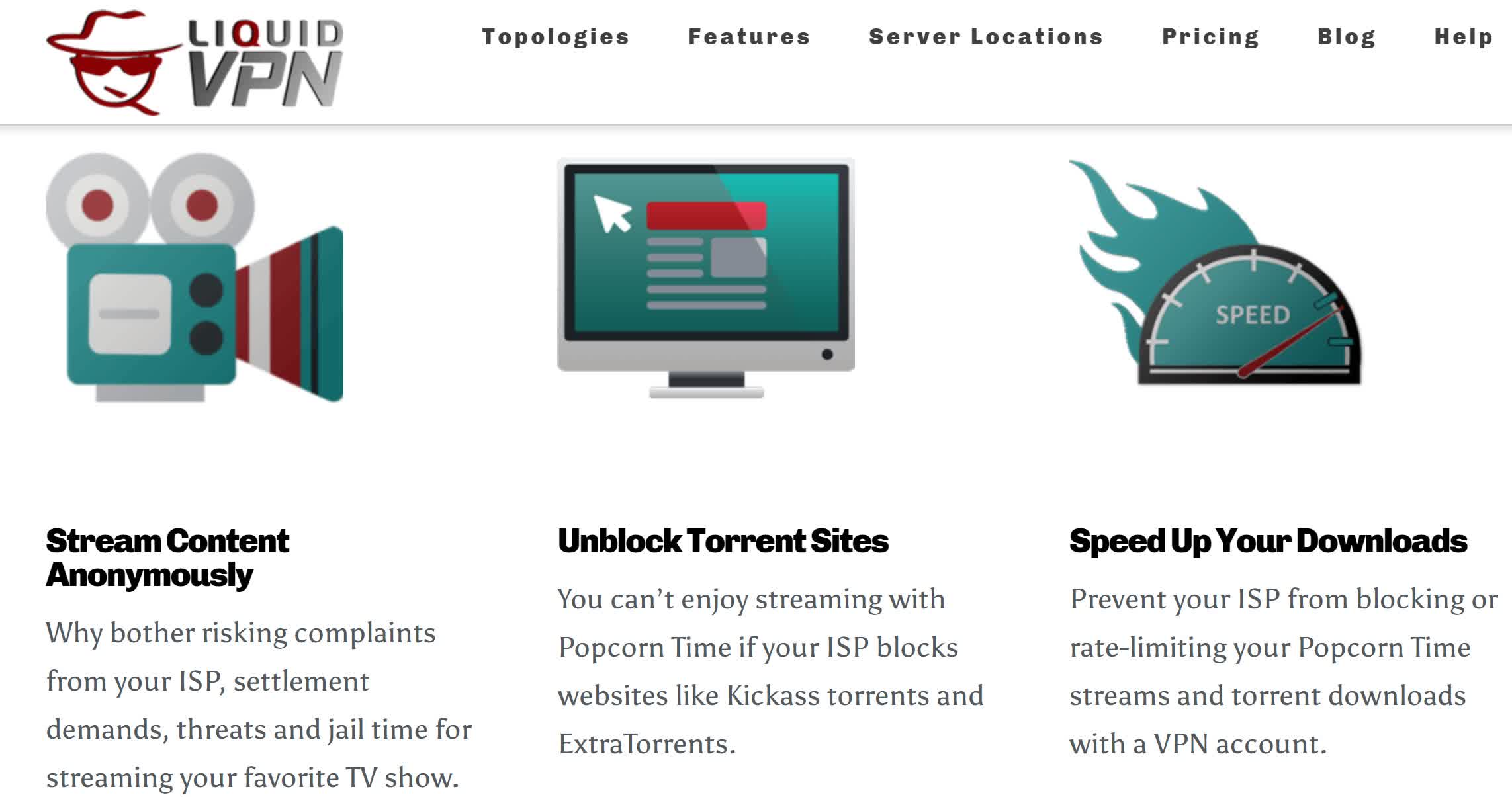What just happened? We've seen plenty of piracy websites feel the full wrath of copyright lawsuits in the past, but VPNs have avoided any legal repercussions. That's about to change, however, as the makers of several movies have filed two lawsuits against LiquidVPN's former and current owners, accusing them of promoting and facilitating piracy.
As reported by TorrentFreak, a group of connected movie production outfits whose films include "Automata" and "I feel pretty" has already pursued legal action against file-sharers and piracy sites. Now, it is going after Michigan resident David Cox and his company SMR Hosting, which allegedly operated LiquidVPN until early 2019. It is also suing the current owners: Puerto Rican company 1701 Management and its sole shareholder Charles Muszynsky.
While VPNs can make identifying and tracking people's online activities more difficult, they're usually classed as neutral services not responsible for their users' actions. But the movie companies say LiquidVPN actively promotes its service "for the purpose of movie piracy" and is therefore "liable for direct and contributory copyright infringement and DMCA violations."
The lawsuit notes that LiquidVPN's website claims the service is the 'Best VPN for Torrenting and P2P Filesharing today,' a statement that sits over an image of The Pirate Bay. There's also an entire section of the site dedicated to Popcorn Time, the free software BitTorrent client featuring an integrated media player.
"The LiquidVPN defendants further state, 'Experience everything Popcorn Time has to offer in the United States and the UK. Except the risks', 'Stream Content Anonymously. Why bother risking complaints from your ISP, settlement demands, threats and jail time for streaming your favorite TV show'," reads the lawsuits.
The plaintiffs seek damages of up to $150,000 for each pirated movie, statutory damages of $25,000 for alleged DMCA violations, and other fees. They also want the defendants to "block subscribers from accessing notorious piracy websites," "block ports 6881-6889," and to adopt a policy that "provides for the prompt termination of subscribers that engage in repeat infringements."

